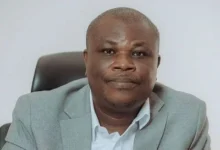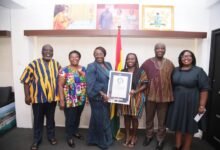Stakeholders urged to prioritise menstrual hygiene
Stakeholders have been urged to prioritise menstrual hygiene of girls and women for the socio-cultural development of the country.
Nana Sekyere Boateng, a Sunyani-based private legal practitioner, made the disclosure here on Sunday at the anniversary celebration of the Awareness Therapy Foundation (AWAT), a non-governmental organisation.
He said most females, especially girls in rural communities could not afford hygiene towels during their menstrual periods and that most of them resorted to rags and other unhealthy materials.
Nana Boateng noted that the situation had negatively impacted teaching and learning through lateness to school, truancy and dropouts among girls, adding that “we should all contribute our quota”.
“Girls are our future mothers, leaders and the hope for the future generations. We have to treat them with love and dignity for the wellbeing of our communities,” the lawyer stated.
Nana Boateng commended the effort of AWAT for championing girls and women empowerment, and health in the Bono East Region. He appealed to philanthropists and corporate bodies to support the foundation.
The Chief Executive Officer (CEO) of AWAT, Evelyn Yeboah, said the foundation was formed in 2017 with three thematic areas; namely girl-child empowerment, members and community volunteering and recycling project.
Mrs Yeboah indicated that the foundation provided the adolescents with useful information on reproductive health, and to set targets and goals for the future through positive role modelling.
“Our target groups are students from Junior and Senior High Schools, upper primary, school dropouts and other vulnerable girls on the Bono East Region,” she stated.
The CEO noted that the project organised education on personal and menstrual hygiene among girls and women, donation of sanitary towels, health screening, career counselling and guidance seminars among others.
Mrs Yeboah expressed appreciation to their partners, sponsors, individuals, groups, members of the foundation and other stakeholders in the region, for supporting the activities of AWAT.
Special awards were presented to individuals and groups who had contributed to the progress of AWAT foundation during the five-year period.
FROM EMMANUEL ADU GYAMFI, TECHIMAN







